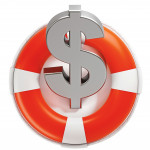More than 90 percent of people who live with schizophrenia and bipolar disorder are commonly affected by agitation, defined as a potent mix of anxiety, hyperactivity and disruptive behavior. This common symptom often occurs in the midst of a manic episode and can cause severe emotional and physical distress several times each year for people living with these mental illnesses. The good news is, there are several medications available to help control agitation in these people. But which drugs work best? Scientists at the University of Liverpool evaluated several medications they deemed to be effective treatments, MPR reports.
Current therapies for psychosis-related agitated episodes utilize a wide array of antipsychotic meds, given with or without supplemental benzodiazepine medications, and prescribed either in oral, intramuscular or inhaled formulations. For this latest study, mental health researchers reviewed 17 randomized controlled studies of various treatment regimens to determine which therapies best addressed agitation in patients.
The studies included people living with four different types of mental illness—schizophrenia, schizophreniform disorder, schizoaffective disorder and bipolar disorder. Researchers dispensed up to three doses of medication to participants during a 24-hour period to help manage their symptoms. For each treatment, scientists examined changes in each person’s level of agitation (known in psychiatry as PANSS-EC scores) and the effects of meds 60 and 120 minutes after they were taken as well as any adverse effects of the treatments.
Results showed that drug therapies were superior to a placebo in all the trials except one, which studied the effects of the antipsychotic drug haloperidol. At 60 minutes, researchers said the atypical antipsychotic drug olanzapine “had the greatest possibility” of being the most effective treatment for agitation. In addition, at 120 minutes, a combination of the antipsychotic med risperidone and clonazepam (an anti-anxiety drug commonly sold under the brand name Klonopin) seemed to work the best overall in treating this symptom.
But researchers stressed that nonpharmacologic approaches are currently considered to be optimal for reducing agitation associated with bipolar disorder or schizophrenia. If treatment is needed, experts suggested the regimen should be as noninvasive as possible, have a rapid onset and provide only short-term control of an episode. (Scientists noted that one antipsychotic drug, loxapine, which is administered via inhalation, is specifically indicated for agitation episodes.)
Today, it is “recognized that more humane, patient-centered approaches result in improved short- and long-term outcomes, including fewer injuries, better therapeutic alliance, improved throughput, and reduced resource use and costs,” wrote study authors.
In conclusion, the researchers suggested that future trials should focus more, overall, on therapies that better the relationship between health care providers and patients with mental disorders, not just the effectiveness of antipsychotic drugs to control their agitated behavior.
Click here to learn more about available treatments for schizophrenia.







Comments
Comments